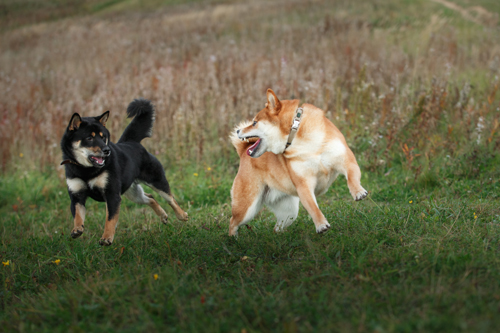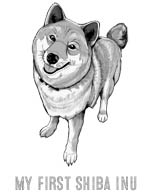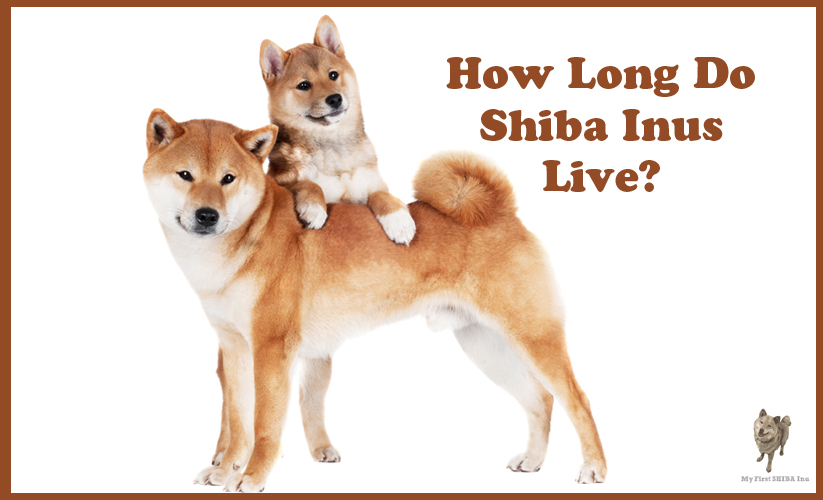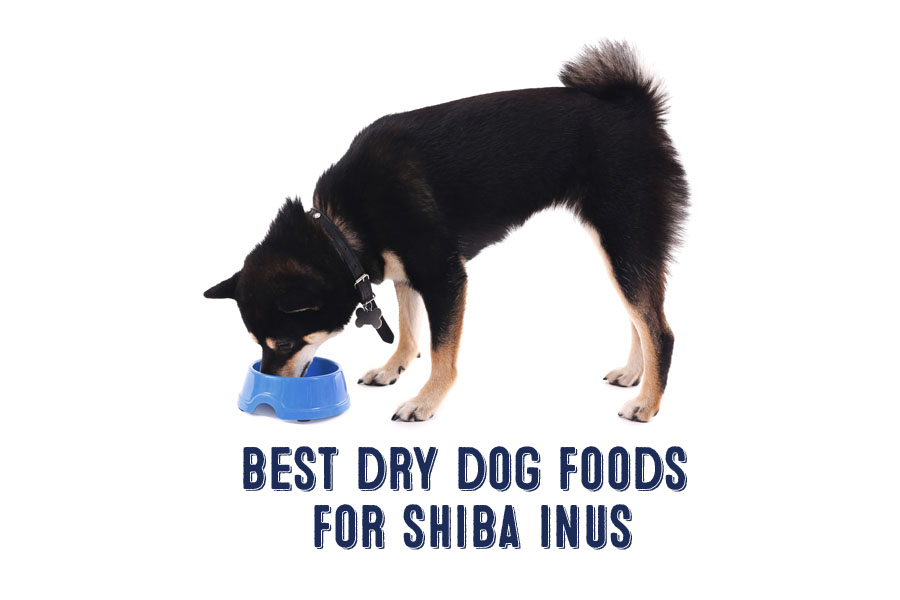What Is The Average Shiba Inu Lifespan?
When you adopt a Shiba Inu, you bond quickly with your new dog or puppy and may worry about what the future holds. How long will your Shiba Inu live? Dogs have very short lifespans in comparison to humans, and it is often a difficult reality to acknowledge. Improving the odds with a healthy lifestyle can make all the difference.
An Ancient Breed
As a Japanese spitz breed, Shiba Inus are closely related to the Akita Inu, Hokkaido Ken and Kai Ken. The Shiba Inu is the smallest of these breeds, which are quite similar in appearance. The origins of these breeds go back to A.D. 7, which is when breed records were established in Japan. DNA research has proven that they are one of the oldest domesticated breeds of dogs.
At first, there were three types of Shiba Inu from the various regions of Japan, but the breed is now recognized as one size and one type. They were originally bred for the purpose of hunting birds and small game, and they were occasionally used when hunting for wild boar.
Being that Shiba Inus are an ancient breed, they have a body that is well adapted to be physiologically efficient and health. They suffer less from the effects of purposeful breeding programs of the modern era.
Your Shiba Inu’s Lifespan
When enjoying good health, you can expect that your Shiba Inu will live for approximately 12 to 15 years. This is a good lifespan for a medium-sized dog, which means this breed has generally good health with few genetic issues. Spaying or neutering your Shiba Inu can also increase his or her lifespan by removing the risk of reproductive cancers.

Genetic Disease in Shiba Inus
Shiba Inus are generally a healthy and strong breed, but they can experience some common health issues that are seen in many different breeds of dogs. A healthy lifestyle and regular veterinary visits can greatly increase the odds extending your Shiba Inu’s lifespan
Luxating patellas
Luxating patellas are a leg condition that causes problems in the knee joint and can result in lameness, sometimes requiring surgery. If your Shiba Inu is limping, especially in the rear end, you should visit your dog’s veterinarian for an exam.
Hip dysplasia
Hip dysplasia can also affect your Shiba Inu, and it can be diagnosed by your veterinarian with x-ray imaging. A dog who seems stiff or weak in the rear end should be evaluated by a veterinarian, and breeding dogs should be evaluated for good hips prior to joining a breeding program and passing this genetic disease along to puppies.
Eye Defects
Eye defects can also affect Shiba Inus, such as progressive retinal atrophy, cataracts and glaucoma. Evaluation of your Shiba Inu’s eyes can be done by a board-certified veterinary ophthalmologist, and all breeding dogs should have their eyes tested prior to joining a breeding program.
Allergies
Allergies can be a problem for Shiba Inus as well. Flea, food or environmental allergies do not necessarily affect your dog’s lifespan, but they can impact the quality of life if not effectively treated by a veterinarian.
Training to Improve Your Shiba Inu’s Life Span
Training your dog can improve his or her lifespan by keeping your dog safely at your side and under control using verbal cues. Training also exercises your dog’s brain and keeps him or her happy, which contributes to good health. Training your Shiba Inu to recall on cue will improve the odds of him or her living a long and healthy life.
High-Quality Food for Your Shiba Inu’s Health
Choosing an excellent diet for your Shiba Inu can improve his or her lifespan by providing excellent nutrition that supports bone and organ health. A high-quality brand of dog food with several types of excellent protein sources and balanced nutrition will help your Shiba Inu to enjoy many years as your companion.
Feeding an appropriate amount and ensuring your Shiba Inu receives plenty of exercise is also important, as an obese dog may have a shorter lifespan. Your dog’s veterinarian can help you to determine if your Shiba Inu’s weight is appropriate and healthy.
Enjoy Your Shiba Inu’s Companionship
Although dogs don’t live as long as we might wish they could, your Shiba Inu will enjoy a long life with your care and commitment to his or her health, training and nutrition.
Do you have any questions about the lifespan of Shiba Inus? Please leave your question in the comments. Remember, by providing your Shiba Inu with these basic needs, you can keep him or her healthy and enjoy many years of companionship.
• Regular veterinary visits
• Spay or neuter your Shiba Inu
• Test for genetic disease so treatment can be provided
• Training for obedience and safety
• A healthy lifestyle, including good nutrition and exercise
Sources:
http://www.shibas.org/newstand/geninfo.html
http://www.petmd.com/dog/breeds/c_dg_shiba_inu
http://www.vetstreet.com/dogs/shiba-inu#1_k8cp7gun


